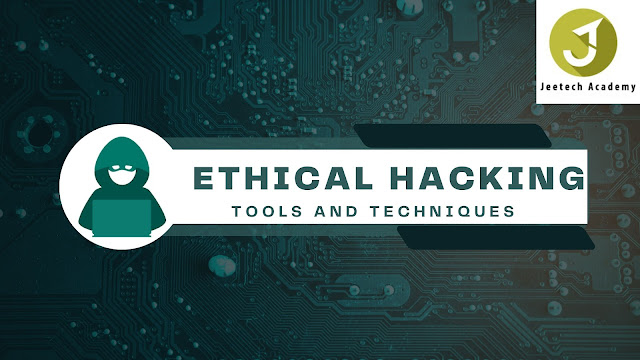Career Benefits of Learning Ethical Hacking
Introduction
In the digital landscape, where cyber threats are becoming more sophisticated, organizations and individuals require skilled professionals who can safeguard their valuable information. Ethical hacking provides a proactive approach to cyber security by identifying vulnerabilities and helping organizations strengthen their defenses. Let's delve into the career benefits that come with learning ethical hacking.
What Is Ethical Hacking?
Ethical hacking, also known as white-hat hacking or penetration testing, refers to the practice of legally and ethically testing the security of computer systems, networks, or software applications. It involves using the same techniques and methodologies employed by malicious hackers or cybercriminals to identify vulnerabilities, weaknesses, and potential entry points in order to improve the overall security posture.
There are five stages of Ethical hacking:
Reconnaissance: This initial stage involves gathering information about the target system or organization. Ethical hackers use various techniques such as open-source intelligence (OSINT), network scanning, and foot printing to collect data about the target's infrastructure, systems, and potential vulnerabilities.
Scanning: In this stage, the ethical hacker uses specialized tools and techniques to identify active hosts, ports, and services within the target network. They perform port scanning, vulnerability scanning, and network mapping to discover potential entry points and weak spots that could be exploited.
Gaining Access: Once vulnerabilities are identified, the ethical hacker proceeds to exploit them to gain unauthorized access. This stage involves techniques like password cracking, exploiting software vulnerabilities, or social engineering to bypass security controls and gain entry into the target system or network.
Maintaining Access: After successfully gaining access, the ethical hacker aims to maintain a persistent presence within the target system. This involves establishing backdoor, creating user accounts, or installing remote access tools to ensure continued access for further exploration and testing.
Covering Tracks: The final stage focuses on erasing any traces of the ethical hacker's presence and activities. This is done to mimic the actions of a real attacker and avoid detection. It involves removing log files, deleting or modifying system logs, and restoring any changes made during the assessment to leave the target system in its original state.
Who Is an Ethical Hacker?
An ethical hacker, also known as a white hat hacker or a penetration tester, is a skilled professional who uses their technical knowledge and expertise to identify and exploit vulnerabilities in computer systems, networks, and software applications. However, unlike malicious hackers (known as black hat hackers), Ethical hackers perform these activities with the permission and for the benefit of the system's owner, typically as part of a security assessment or testing process.
hackers can be categorized into three main types based on their intentions and activities:
White Hat Hackers: White hat hackers are individuals who use their skills for ethical and legal purposes. They work in collaboration with organizations and individuals to identify and fix security vulnerabilities. Their primary goal is to improve system security by finding weaknesses before malicious hackers can exploit them. White hat hackers often perform penetration testing, vulnerability assessments, and security audits with proper authorization and consent.
Black Hat Hackers: Black hat hackers, also known as malicious hackers or simply "hackers" in popular culture, engage in unauthorized activities with malicious intent. They exploit vulnerabilities in computer systems, networks, and software for personal gain, such as financial fraud, data theft, or disruption of services. Their actions are illegal and unethical, and they can cause significant harm to individuals, organizations, and society as a whole.
Gray Hat Hackers: Gray hat hackers fall somewhere in between white hat and black hat hackers. They may exploit vulnerabilities without proper authorization, but their intentions are not necessarily malicious. Gray hat hackers may access systems or networks without permission to uncover security flaws and then notify the owners about the vulnerabilities. Although their actions are not legally authorized, they often aim to assist organizations in improving their security posture.
Career Benefits of Ethical Hacking
Ethical hacking, also known as penetration testing or white hat hacking, refers to the practice of deliberately and lawfully exploiting vulnerabilities in computer systems or networks to identify potential security weaknesses. It involves using the same techniques and tools as malicious hackers, but with the explicit permission of the system owners.
Engaging in ethical hacking can offer several career benefits, including:
Increased demand: With the growing dependence on technology and the rise in cyber threats, organizations are increasingly recognizing the need to protect their systems and data. Ethical hackers play a crucial role in identifying vulnerabilities and enhancing security measures, leading to a high demand for skilled professionals in this field.
Lucrative job opportunities: Due to the scarcity of skilled ethical hackers, professionals in this field often enjoy attractive job prospects and competitive salaries. Organizations are willing to invest in individuals who possess the knowledge and expertise to safeguard their systems from potential attacks.
Career progression: Ethical hacking offers ample opportunities for career advancement. As professionals gain experience and demonstrate their skills, they can take on more challenging roles, such as security analysts, security architects, or even chief information security officers (CISOs). Continuous learning and acquiring relevant certifications can open doors to higher-level positions.
Versatile skill set: Ethical hacking requires a comprehensive understanding of computer systems, networks, programming languages, and security protocols. By delving into this field, individuals develop a versatile skill set that includes vulnerability assessment, network security, cryptography, incident response, and risk management. These skills are highly transferable and can be valuable in various cyber security roles.
Contribution to cyber security: Ethical hackers contribute to the overall security of organizations by identifying vulnerabilities and helping prevent unauthorized access or data breaches. This work is essential for protecting sensitive information, maintaining the privacy of individuals, and safeguarding critical infrastructure. By becoming an ethical hacker, professionals can make a positive impact on cyber security and society as a whole.
Continuous learning and intellectual challenge: Ethical hacking is a field that constantly evolves. To stay ahead of emerging threats and new security measures, ethical hackers must engage in continuous learning and keep up with the latest technologies and attack vectors. This ongoing intellectual challenge can be stimulating and rewarding for individuals who enjoy staying at the forefront of cyber security.
Ethical hacking certifications: Acquiring recognized certifications in ethical hacking, such as Certified Ethical Hacker (CEH) or Offensive Security Certified Professional (OSCP), can significantly boost career prospects. These certifications validate one's skills and expertise, demonstrating a commitment to ethical hacking principles and providing credibility in the job market.
Conclusion
Learning ethical hacking offers numerous career benefits in today's technology-driven world. From job security and lucrative opportunities to continuous learning and professional growth, ethical hacking opens doors to a rewarding and fulfilling career. By contributing to cybersecurity and protecting against cyber threats, ethical hackers play a crucial role in maintaining the integrity of digital systems. If you are passionate about technology, have a keen interest in cybersecurity, and enjoy problem-solving, learning ethical hacking can be a wise and rewarding career choice.



.jpg)
Comments
Post a Comment